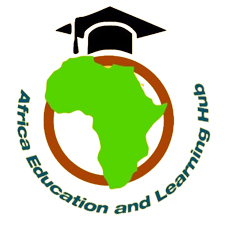Participatory Action Learning and Action Research
Date
2023Author
Oxfam IBIS Education Out Loud (EOL) program Regional Management Unit (RMU)
Type
OtherLanguage
enItem Usage Stats
229
views
views
16
downloads
downloads
Abstract
Twenty two Education Advocacy networks engaged by Oxfam Denmark under the Education Out Loud (EOL) Programme attended a training workshop on Participatory Action Learning and Action Research training held at MS TCDC Tanzania, between 18th and 22nd September 2023.
This learning initiative was organised to build the capacity of grantees in one area of capacity deficiency, namely Participatory Action Learning and Action Research (PALAR).
The EOL program is funded by the Global Partnership for Education and managed by Oxfam Denmark. EOL is the world's largest fund dedicated to enhancing civil society capacity and advocacy for education policies aligned with the GPE 2025 goal. It aims to improve access, learning outcomes, and gender equality in 21st- century education systems. The program has three key objectives: 1) Enhance civil society engagement in education policy, 2) Boost civil society's role in ensuring policy transparency and accountability, and 3) Facilitate a cross-border environment for education policy advocacy and transparency efforts.
As a five-day specialized training, forged through a short curriculum delivered in five modules;
Identifying challenges, problems that require PALAR to ensure effective project implementation.
Introduction to Principles and Practices of PALAR.
Application of PALAR to EOL Projects. PALAR approaches, tools, and techniques. PALAR Report Proposal Outline and Budget
Participants of the PALAR training workshop committed to implement a range of new actions in their education advocacy networks.
The new actions will be aimed at integrating PALAR principles into their work, emphasising inclusivity, stakeholder engagement, and effective communication. Participants committed to adapt action research to suit their specific contexts, ensuring ownership, credibility, and coordination in their efforts. These actions collectively reflect a commitment to more participatory and impactful education advocacy in Africa.
Participants plan to adapt action research to suit their specific contexts, incorporating both qualitative and quantitative methods while using PALAR principles. There is a clear emphasis on (a) engaging community groups, learners, and relevant stakeholders in research and project planning, aiming for inclusivity in decision- making processes; (b) ensuring that participants and affected communities are the owners of the process, and resources used are credible and reliable; (c) Collaborative efforts are encouraged, including coordinating research and analysis using participatory action research methods and involving consultants in these processes.
Stakeholder engagement became a recurring theme, whether it's using PALAR methods for engaging with stakeholders on education financing issues or organising meetings to share PALAR information with coalition members and stakeholders. Participants plan to apply PALAR to conduct quarterly reflection meetings to document results and enhance project/program implementation.
Communication is paramount, with participants intending to share knowledge within their teams and networks through various means like factsheets, policy briefs, and storytelling.
Description
PALAR Training Report
